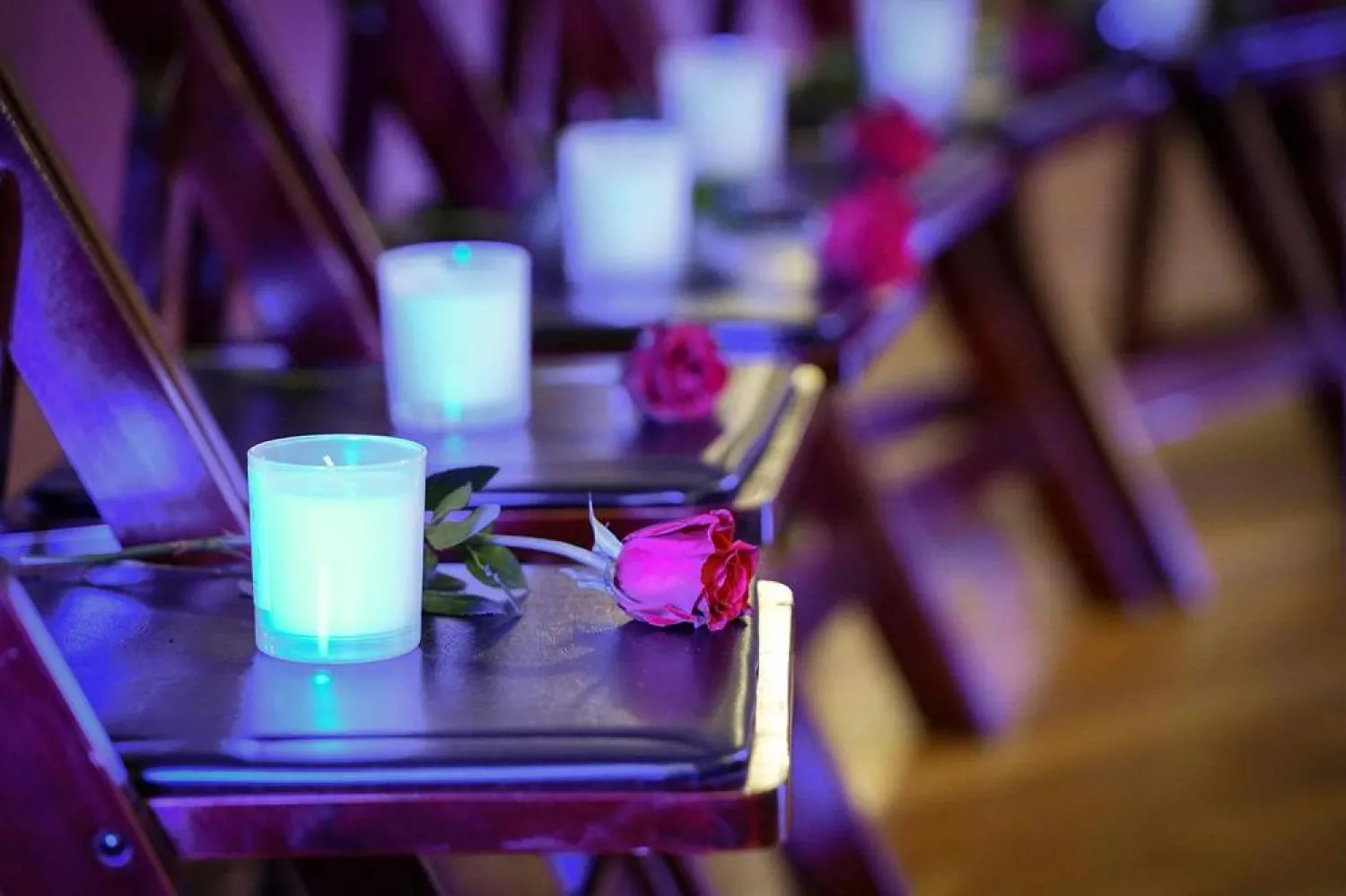A girl who wrote in her diaries, a boy with learning disabilities who was just learning to like who he was and a teen who would spend every free minute fishing were among the 13 victims of the Columbine High School shooting remembered during a vigil Friday on the eve of the 25th anniversary of the shooting that was the worst the nation had seen at the time.
As small candles flickered on 13 empty chairs, short biographies of Columbine students Rachel Scott, Kyle Velasquez and Corey DePooter and the other victims were read one by one. After each, the crowd of about 150 people replied together “never forgotten” and a bell tolled.
The youngest killed in the attack that has inspired dozens of copycat shootings was Steven Curnow, 14. The oldest was teacher Dave Sanders, 47, who shepherded students out of the cafeteria to safety and was shot as he tried to get students upstairs into classrooms.
The others killed were Cassie Bernall, Kelly Fleming, Matt Kechter, Daniel Mauser, Dan Rohrbaugh, Isaiah Shoels, John Tomlin and Lauren Townsend.
Sanders' daughter, Coni Sanders, said her father changed the world forever by saving hundreds of students.
“The kids that he saved now have children and those children will have children so generations from now people will know they exist because of his bravery,” she said before the ceremony began.
The gathering, set up by advocates including gun safety organizations, was the main public event marking Saturday's anniversary, which is more subdued than previous milestone years. In addition to remembering those killed, the vigil at a church near the state Capitol also drew attention to those who were wounded and those who survived the shooting but suffered trauma.
Daniel Mauser's father, Tom Mauser, decided to set up the vigil after learning school officials did not plan to organize a large community event as they did on the 20th anniversary.
Mauser, who became a gun safety advocate after the shooting, urged the crowd of about 150 people gathered at a church across from the state Capitol never to forget the victims of Columbine and to take some kind of action to reduce gun violence.
“And most importantly we ask you to never forget, never forget the victims of Columbine. The slain, the injured, the traumatized and their families. And especially never forget those who lost their lives,” said Mauser, wearing his son's sneakers, a tradition he reserves for special occasions.
Former Arizona Congresswoman Gabby Giffords, who began campaigning for gun safety after she was nearly killed in a mass shooting, attended and spoke about her long recovery, drawing a comparison to the small steps needed to make change in the world.
“Change doesn't happen overnight and we can't do it alone. Join me. Let's move ahead together,” she said, drawing a standing ovation.
Nathan Hochhalter, whose sister Anne Marie was paralyzed after she was shot at Columbine, spoke about being trapped in a classroom at the school with about 30 students as they heard gunfire nearby. They were rescued about four hours later by SWAT officers who he said frisked them five times. Six months later, his mother, who had bipolar disorder, took her own life after asking to look at a gun in a pawnshop and shooting herself there.
“I just want to use this moment to let everyone know that it’s OK to ask for help, whatever your situation is whether, either as a survivor 25 years later or someone struggling with any part of their life. These things come in waves and they can hit you when you least expect it. You should all know that we’re all here for you and that you're not alone,” Hochhalter said.









